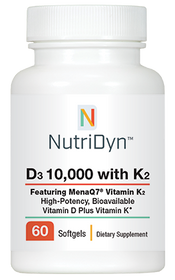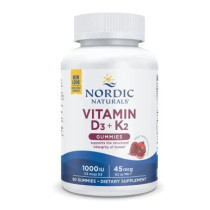Vitamin D
You can learn more about Vitamin D by reading our recent article There’s Never Been A More Important Winter to Make Sure You’re Getting Enough Vitamin D.
Vitamin D is a fat-soluble vitamin that supports the absorption of other vitamins and minerals in the gastrointestinal tract. Most of our Vitamin D is actually coming from sunlight, specifically UVB rays. This process occurs when 7-Dehydrocholesterol, found in the epidermal layer of the skin, is hit by UVB rays and converts into cholecalciferol. However, some areas of the world have times when getting adequate sun exposure is not possible. This is one example where Vitamin D supplementation may be beneficial.
Vitamin D is also available in some foods, but those with a low tolerance to dairy or other diet restrictions, along with vegans, may be susceptible to a vitamin D deficiency. When ingested, or during exposure to the sun, vitamin D remains inactive and requires activation by enzymes in the kidneys and liver.
Following activation, vitamin D supports several healthy functions in the body. Some of these roles include the modulation of cell growth, support for a healthy immune system, and a healthy circulatory system. Vitamin D also supports calcium absorption, which promotes the healthy development of bones during normal aging.
Vitamin D Supplements May Support:
- Healthy vitamin and mineral absorption
- Normal bone development and maintenance during healthy aging
- A healthy immune system
























